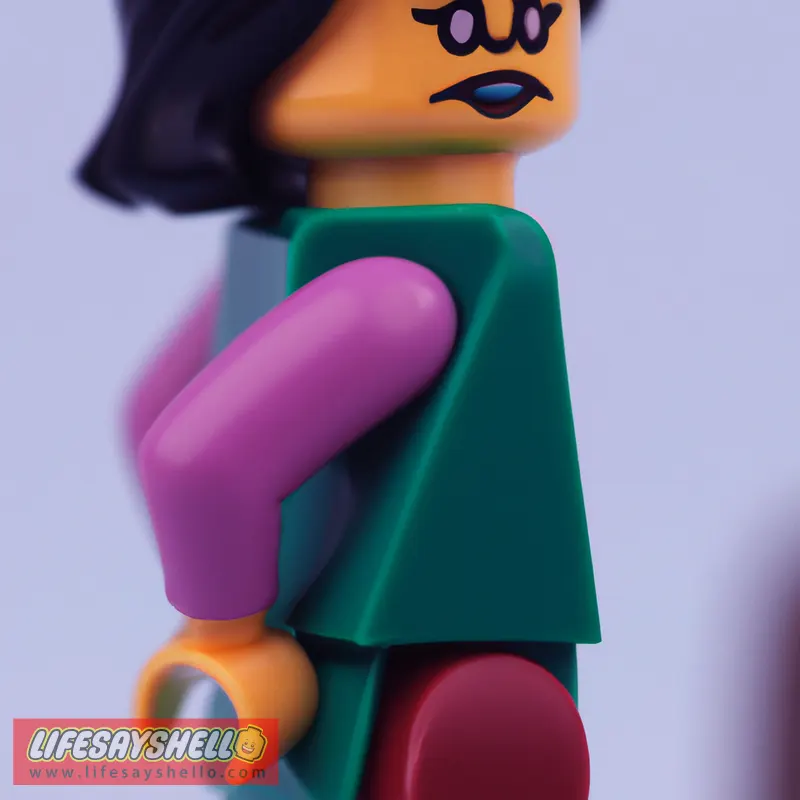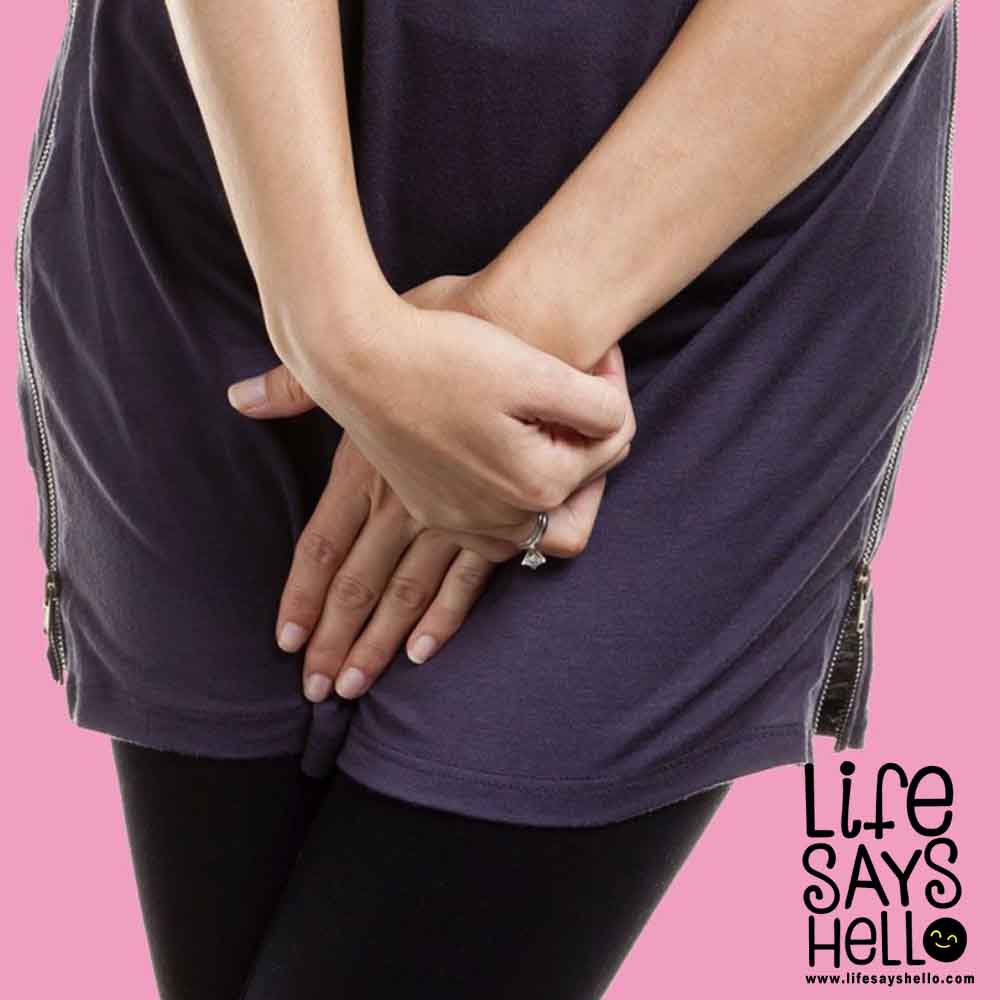Why Does My Vagina Itch So Much? 7 Common Causes and Treatments

Has your vagina been feeling super itchy lately? You're definitely not alone. Vaginal itching is a common annoyance that most women will experience at some point in their lives. The delicate skin around your vulva is very sensitive and can become irritated for a variety of reasons.
While the burning and inflammation down there can feel torturous, try not to scratch! Excessive scratching can further damage the thin tissues. Understanding what's behind your vaginal itch is key to finding the right relief and getting back to comfortable days.
In this post, we'll explore some of the most common culprits behind vaginal itching and effective over-the-counter and prescription remedies. Read on to figure out why your vagina is so darn itchy and how to soothe the maddening sensation once and for all!
1. Yeast Infections Are Usually To Blame
If you have an intense burning and itching sensation in your vagina accompanied by a thick, white discharge, chances are high that a yeast infection is the reason behind your vaginal woes.
Yeast infections occur when there is an overgrowth of the Candida fungus. Small amounts of Candida naturally live in your vagina. But certain factors can trigger the yeast to rapidly multiply, causing an infection.
What puts you at risk for a yeast infection?
- Taking antibiotics - Antibiotics kill off good bacteria needed to control Candida overgrowth
- Hormonal changes - Fluctuations during your period, pregnancy, or from birth control can up yeast infection risk
- Weak immune system - Certain medical conditions like HIV or diabetes make you more susceptible
- Poor lifestyle habits - Tight clothing, synthetic fabrics, too much sugar, etc.
In addition to itching, yeast infection symptoms include:
- White, cottage cheese-like discharge
- Red, inflamed vagina and vulva
- Burning when you pee or have sex
- Rash or soreness near vagina
Yeast infection itching is no joke and can make you feel miserable. Thankfully, there are some great over-the-counter antifungal treatments that can help.
Yeast Infection Home Remedies and Medications
For mild to moderate yeast infections, you can try an over-the-counter antifungal cream like Monistat, Vagistat, or generic miconazole. These are inserted into the vagina for 1-7 days.
You can also ask your doctor for a prescription oral antifungal pill, like fluconazole. This is taken as a single dose and gets rid of most yeast infections.
Some other prescription antifungals to treat vaginal yeast infections include:
- Clotrimazole vaginal cream or suppositories
- Tioconazole ointment
- Terconazole vaginal cream or suppositories
- Butoconazole cream with applicators
In addition to medication, you can take these steps help prevent future yeast infections:
- Wear cotton underwear and loose, breathable clothes
- Avoid unnecessary antibiotics
- Don't use scented products near vagina
- Pee after sex to flush out yeast
- Take probiotics to support healthy vaginal bacteria
See your gynecologist if over-the-counter treatments don't relieve your symptoms within a few days. Recurrent yeast infections may require longer antifungal treatment and evaluation for underlying medical conditions.
2. Bacterial Vaginosis Disrupts Vaginal pH
Bacterial vaginosis (BV) is a type of vaginal inflammation triggered by an overgrowth of harmful bacteria. It's the most common vaginal infection among women of reproductive age.
Some symptoms of bacterial vaginosis include:
- Thin, gray, white or green vaginal discharge
- Fishy odor, especially after sex
- Burning when peeing
BV itself doesn't directly cause itching. But it makes you more prone to yeast infections, which can cause very irritating vaginal itching.
BV happens when too much "bad" bacteria overwhelms the healthy lactobacilli bacteria. Douching, new sex partners, and inconsistent condom use increase BV risk.
BV Treatment Options
Over-the-counter products won't cure bacterial vaginosis. See your doctor for prescription antibiotic treatment, such as:
- Metronidazole - Antibiotic taken by mouth for 1 week
- Clindamycin - Antibiotic cream used for 1 week
- Tinidazole - Oral antibiotic taken daily for 5 days
Other tips to manage BV:
- Avoid douching
- Use condoms
- Take probiotics
- Finish antibiotics fully
Let your doctor know if BV returns after treatment. Recurrent infections may require longer antibiotics, different delivery methods, or evaluation for underlying causes.
3. Menopause and Vaginal Atrophy
As estrogen levels drop during perimenopause and menopause, tissues in the vagina start to thin and dry out. This vaginal atrophy is a common cause of itchiness.
Declining estrogen causes the vaginal walls to become thinner, fragile, and more prone to irritation. It also reduces lubrication, leaving the vagina more vulnerable to inflammation and infection.
In addition to itchiness, symptoms of vaginal atrophy include:
- Dryness
- Burning
- Pain during sex
- Light bleeding after intercourse
- More frequent UTIs
As women go through menopause, up to half experience vaginal atrophy. But there are both over-the-counter and prescription treatments that can help.
Menopausal Vaginal Itching Remedies
To relieve vaginal dryness and itching during menopause, you can try:
- Over-the-counter vaginal moisturizers and lubricants like Replens or K-Y Silk
- Vitamin E supplements to hydrate vaginal tissues
- Staying sexually active to increase blood flow
- Kegel exercises to improve vaginal muscle tone
- Estrogen creams, rings, or tablets
Prescription estrogen therapies like creams (Premarin, Estrace), vaginal rings (Estring), or tablets (Vagifem) can be very effective for relieving menopausal vaginal changes. But discuss the potential risks with your doctor, especially if you have a history of certain cancers.
Also let your doctor know if over-the-counter vaginal moisturizers or lubricants aren't providing enough relief for menopausal vaginal itching and irritation. Other prescription treatments may be available.
The good news is vaginal itching related to menopause can be improved through treatment. You don't have to live with the discomfort.
4. Chemical Irritants Can Trigger Allergic Reactions
Many everyday products contain chemicals that can irritate the sensitive skin around the vagina, causing itchiness and discomfort known as contact dermatitis.
Potential irritants include:
- Perfumes, dyes, and other chemicals in soaps, detergents, bath products
- Ingredients in menstrual products like pads and tampons
- Spermicides
- Contraceptive foams, jellies, and sponges
- Douches, feminine hygiene sprays
- Fabric softeners and fragrances in toilet paper
- Tight clothing made from synthetic fabrics
When these substances come in contact with the vulva, labia, vaginal opening, or inner vagina, they can trigger an allergic reaction. The skin becomes inflamed, red, and intensely itchy.
Relieving Irritant and Allergic Contact Dermatitis
To soothe contact dermatitis of the vagina and vulva:
- Avoid any products identified as irritants
- Stick to 100% cotton underwear
- Use mild, fragrance-free soaps and washes
- Rinse the vulva thoroughly after washing
- Wear loose, breathable fabrics
- Apply a cold compress for temporary itch relief
- See your doctor for prescription steroid cream if needed
Being aware of potential chemical irritants and using more gentle, less sensitizing products can help prevent recurrent contact dermatitis flares.
If symptoms don't improve within a few days after removing the source of irritation, make an appointment with your doctor to discuss treatment options. You may need prescription medication to fully clear up the allergic reaction.
5. Sexually Transmitted Infections
Certain sexually transmitted infections (STIs) can cause vaginal itching, burning, and inflammation. Some STIs to be aware of include:
Chlamydia
- Most common STI in women under 25
- Often asymptomatic but can cause itching, discharge, painful urination
- Treated with antibiotics
Genital Herpes
- Caused by HSV-2 virus
- Painful blisters or sores on genitals
- Antiviral medication can help manage
Trichomoniasis
- Parasitic infection causing yellow-green discharge
- Itching and discomfort around vagina
- Treated with prescription antibiotic
Gonorrhea
- Bacteria causing thick, yellow discharge, bleeding
- Also causes painful urination
- Treated with antibiotics
Genital Warts
- Caused by HPV virus
- Small, fleshy bumps on vagina or vulva
- Topical treatments can remove warts
Syphilis
- Bacterial infection spread through contact
- Painless sores in early stages
- Treated with penicillin injection
Getting Tested for STIs
If you suspect an STI is behind your vaginal itching, see your doctor right away. You'll need lab tests to diagnose the specific infection and get proper treatment.
Protect yourself from STIs by:
- Using condoms every time you have sex
- Getting regular STI screenings
- Limiting sexual partners and avoiding risky behaviors
- Getting the HPV vaccine
With proper protection and prompt treatment, the itching and discomfort from STIs can be cured.
6. Certain Skin Conditions
Skin problems affecting the vulvar area may also cause vaginal itching. Two examples are:
Lichen Simplex Chronicus
- Thickened, scaly skin patches from chronic itching/scratching
- Treatment focuses on breaking the itch-scratch cycle
- Topical steroids, antihistamines help
Lichen Planus
- Inflammatory condition causing lace-like rash
- Affects mucous membranes like vagina and vulva
- Corticosteroids, prescription creams/gels can help
See your dermatologist if you have any abnormal skin changes on or near your vagina combined with persistent itchiness. Proper diagnosis and treatment of vulvar skin conditions can bring relief.
7. Other Potential Causes
A few other possibilities that could be behind vaginal itching include:
- Sweat, moisture, and rubbing from exercise
- Poor hygiene and cleaning habits
- Sensitivity or allergic reaction to laundry detergent, fabric softeners
- Sensitivity to lubricants, spermicides, or latex condoms
Maintaining good vaginal hygiene, wearing breathable cotton fabrics, and using gentle, fragrance-free products can help prevent itching from these sources.
If it persists, see your gynecologist to pinpoint the cause and appropriate treatment. An examination and lab tests can check for infections, skin conditions, and other problems leading to vaginal itching.
The Takeaway: Find Relief from Vaginal Itching
Vaginal itching has many potential causes. From yeast infections to STIs, chemical irritants to skin conditions, pinpointing the source is key to finding the right treatment.
While waiting for itching relief:
While waiting for itching relief:
- Avoid scratching, which can worsen inflammation
- Stick to cotton underwear and loose, breathable clothes
- Use OTC antifungals or vaginal moisturizers/lubricants
- Try a cold compress to temporarily soothe itching
- See your doctor for evaluation and treatment
See your gynecologist if over-the-counter remedies don't help within a few days. Prescription medications may be needed to address the underlying cause, whether it's a yeast infection, STI, or other medical condition.
Vaginal itching and irritation can really disrupt your life. But with the right diagnosis and treatment, you can find relief and get back to pain and worry-free days!
I hope this article gave you some insights into why your vagina might be feeling so intensely itchy. Don't hesitate to see your doctor or gynecologist if self-care measures aren't resolving the irritation. There are many effective options to curb vaginal itching and discomfort with the proper treatment plan.




Comments